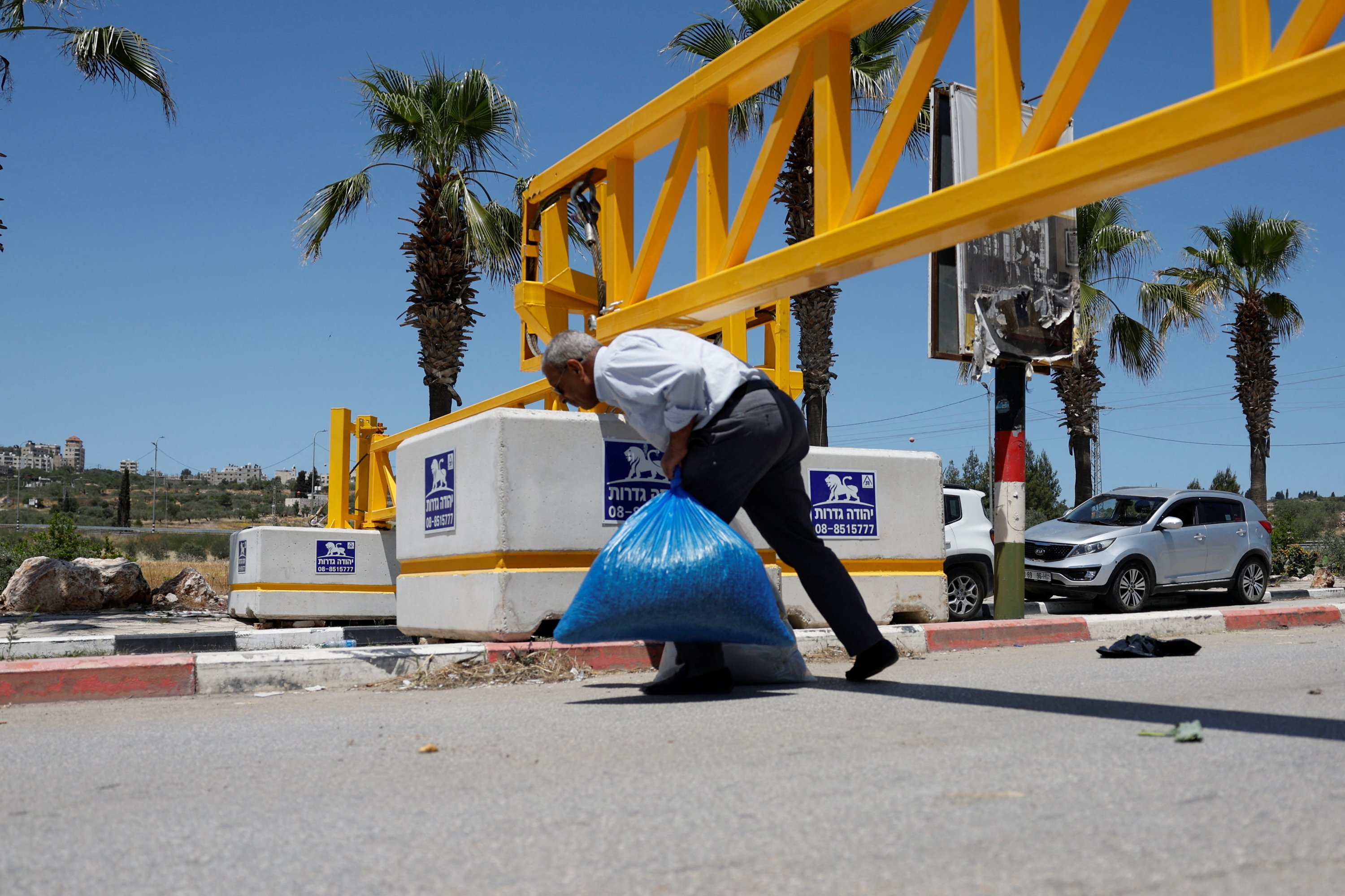© Turkuvaz Haberleşme ve Yayıncılık 2026
A towering 5-meter (16-foot) metal fence slices through the eastern edge of Sinjil, a Palestinian town in the Israeli-occupied West Bank.
Heavy steel gates and roadblocks seal off all but one narrow entry point, monitored by Israeli soldiers stationed at guard posts.
“Sinjil is now a big prison,” said Mousa Shabaneh, 52, a father of seven, his voice heavy with resignation as he watched workers erect the barrier through the heart of his nursery, once filled with trees he had nurtured for sale, his only source of income.
“We’re not allowed to go there anymore. All the trees I had were burned and destroyed,” he said. “In the end, they cut off our livelihood.”
Walls and checkpoints imposed by Israeli forces have long shaped daily life for nearly 3 million Palestinians in the West Bank.
But many now say a surge in such barriers since the start of the war in Gaza has turned towns and villages into open-air prisons, under a constant state of siege.
The fence around Sinjil is a particularly stark example of barriers that have sprung up across the territory, becoming an overwhelming feature of daily life. The Israeli military said it erected the structure to protect the nearby Ramallah-Nablus highway.
“In light of the recurring terror incidents in this area, it was decided to place a fence to prevent stone-throwing at a main route and repeated disturbances of public order, thereby safeguarding the security of civilians in the region,” the military said in a statement.
Because residents are still permitted to enter and exit through the single remaining entrance, the policy is deemed to allow “free access” to the town, the military added.
Residents now must walk or drive through narrow, winding streets to reach the sole authorized entry point. Some cross road closures on foot to reach vehicles on the other side.
Those who once earned their livelihoods on the surrounding land are effectively cut off, said Bahaa Foqaa, Sinjil’s deputy mayor. He said the fence had enclosed 8,000 residents within barely 10 acres, cutting them off from 2,000 acres of privately owned farmland.
“This is the policy that the occupation army uses to intimidate people and break the will of the Palestinian people,” he said.
Israel says its fences and barriers in the West Bank are necessary to protect Jewish settlers who have moved into the territory since Israel captured it during the 1967 war.
Israel Gantz, head of the Binyamin Regional Council, which governs the 47 Israeli settlements in the part of the West Bank where Sinjil is located, said the town’s fence was needed because its residents had thrown stones and Molotov cocktails at cars on the nearby highway – “solely because the occupants were Jewish.”
“A carte blanche lifting of the restrictions on Arab Palestinians would encourage the mass murder of Jews,” he told Reuters.
About 700,000 Israelis now reside in the territory Israel captured in 1967. Most countries consider such settlements a violation of the Geneva Conventions, which ban transferring civilian populations into occupied territory. Israel says the settlements are legal and justified by historic and biblical Jewish ties to the land.
After decades of paying lip service to the prospect of an independent Palestinian state, Israel’s far-right government now includes prominent settler activists who openly call for annexing the entire West Bank.
Israel increased its military presence in the West Bank following Hamas’ Oct. 7, 2023, incursion on southern Israel, which triggered a war that has devastated Gaza, the other major Palestinian territory.
Overnight, Israeli forces placed mounds of earth and heavy boulders on roads.
Soon after, heavy metal gates – usually painted yellow or orange – were installed and locked at entrances to Palestinian communities, often along roads also used by Israeli settlers.
The military established new permanent checkpoints. “Flying” checkpoints – pop-up roadblocks set up without warning – became more frequent.
Sana Alwan, 52, who lives in Sinjil and works as a personal trainer, said what used to be a short drive to Ramallah now can take up to three hours each way, with no way of knowing how long she’ll be stuck at checkpoints.
Her work has slowed because she can no longer promise clients that she’ll reach them.
“Half of our life is on the roads,” she said.
While the West Bank has largely been spared the all-out assault seen in Gaza, life has become increasingly precarious.
A ban on entering Israel for work abruptly cut off income for tens of thousands of Palestinian laborers.
Earlier this year, tens of thousands of West Bank residents were displaced during an Israeli crackdown in Jenin in the north.
Mohammad Jammous, 34, who grew up in Jericho and now lives in Ramallah, used to visit his family almost every week.

With a one-hour drive now stretching to several hours each way, he said he now makes the trip just once a month.
The Israeli military said its forces operate in a “complex security reality” and that checkpoints must be regularly relocated and newly established to monitor movement and respond to threats from Palestinian communities.
Officials with the Palestinian Authority, which exercises limited self-rule in the West Bank under Israeli occupation, suspect the suffocating restrictions are deliberate. They warn that the worsening conditions could backfire by pushing more young Palestinians toward militancy.
“They are doing everything they can to make life extremely difficult for our people,” Palestinian Prime Minister Mohammad Mustafa told reporters last month.
